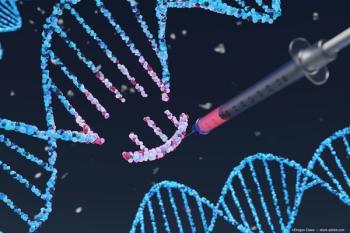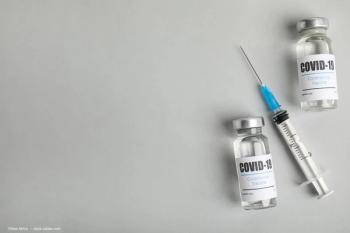
Genetics plays role in the loss of smell, taste during COVID-19 infection
Researchers collected data on COVID-19 symptoms via online surveys from in excess of 1 million 23andMe participants who self-reported their COVID-19 symptoms.
Genetics researchers reported identifying a genetic link to the biologic mechanisms responsible for COVID-19-related loss of smell or taste. Janie Shelton and associates from 23andMe, Sunnyvale, California, published their findings in Nature Genetics.1
The researchers collected data on COVID-19 symptoms via online surveys from in excess of 1 million 23andMe participants who self-reported their COVID-19 symptoms. From these, the investigators conducted a genome-wide association study of COVID-19-related loss of smell or taste.
“By asking study participants to report the symptoms they encountered during their COVID-19 experience, we identified SARS-CoV-2 test-positive individuals who reported a loss of smell or taste and contrasted them with test-positive individuals who did not report a loss of smell or taste,” the investigators explained.
Smell or taste affected in over two-thirds of COVID-19 patients
Almost 70,000 individuals who responded to the surveys reported testing positive for SARS-CoV-2, and of those 68% reported loss of smell or taste as a symptom (47,298 of 69,841 individuals), the results showed.
Women were more likely to report loss of smell or taste, with 72% vs. 61% of men. In addition, those affected tended to be younger (mean age, 41 years for those with loss of smell or taste compared with 45 years for those without).
The results also showed that “among genetically determined ancestral groups, rates of loss of smell or taste ranged between 63% and 70%” and that people with East Asian or African-American ancestry reported less loss of smell or taste compared with those of European ancestry.
The investigators identified the UGT2A1/UGT2A2 locus as responsible for the loss of smell and taste. Both genes are in the olfactory epithelium and play a role in metabolizing odorants, they explained.
Reference
1. Shelton JF, Shastri AJ, Fletez-Bryant K, et al. The UGT2A1/UGT2A2 locus is associated with COVID-19-related loss of smell or taste. Nat Genet 2022; published Jan 17;
Newsletter
Don’t miss out—get Ophthalmology Times updates on the latest clinical advancements and expert interviews, straight to your inbox.





























